mirai
Latest
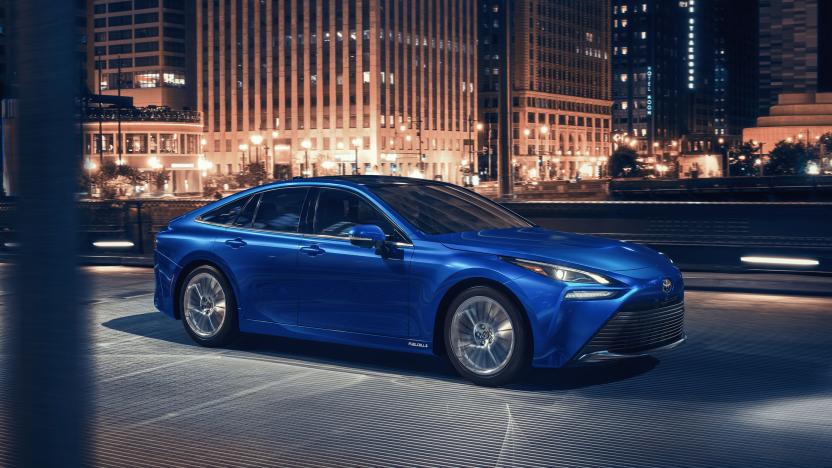
Toyota claims its future EVs will have a range over 600 miles
The company also continues to push hydrogen fuel cars.
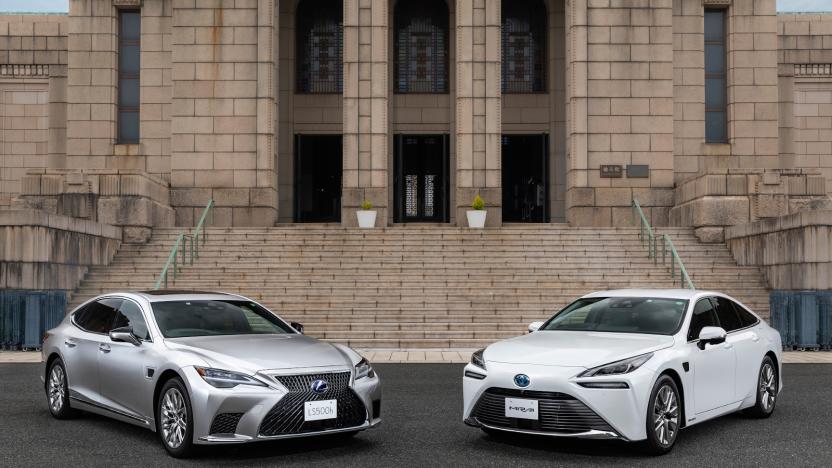
Toyota's new Mirai and Lexus LS models come with Advanced Drive assistance tech
Toyota has launched Advanced Drive, a new driver assistance technology, with the latest Toyota Mirai and Lexus LS vehicles.

DOJ announces guilty plea for 2016 cyberattack that broke the internet
More than four years after the Dyn cyberattack in 2016, we have a better idea of who was behind one of the most disruptive DDoS attacks in internet history.
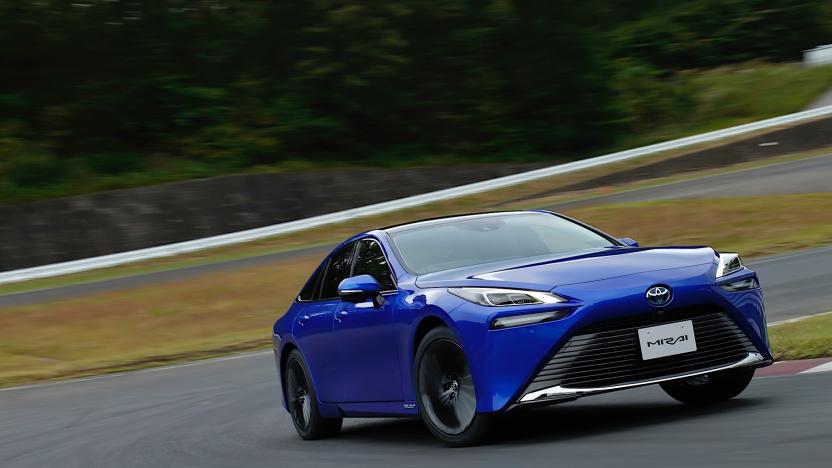
Toyota's second-generation Mirai has a 400-mile range
The new hydrogen-powered car can boast of a more efficient fuel cell and longer range, but the same question of refueling won't go away.
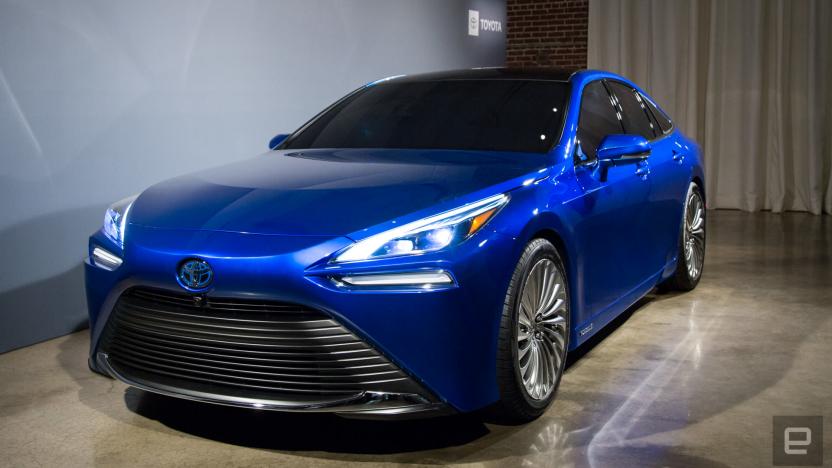
Toyota’s hydrogen fuel-cell Mirai gets a new, luxurious look
Hydrogen fuel-cell vehicles have a tough time out there in the real world. They have all the ecological advantages of an EV and the refueling speed of a gasoline vehicle. But there's that whole infrastructure issue. Without places to refuel, the best car in the world is essentially worthless. But that hasn't stopped Toyota from introducing a new, classier Mirai ahead of the Tokyo Motor Show.
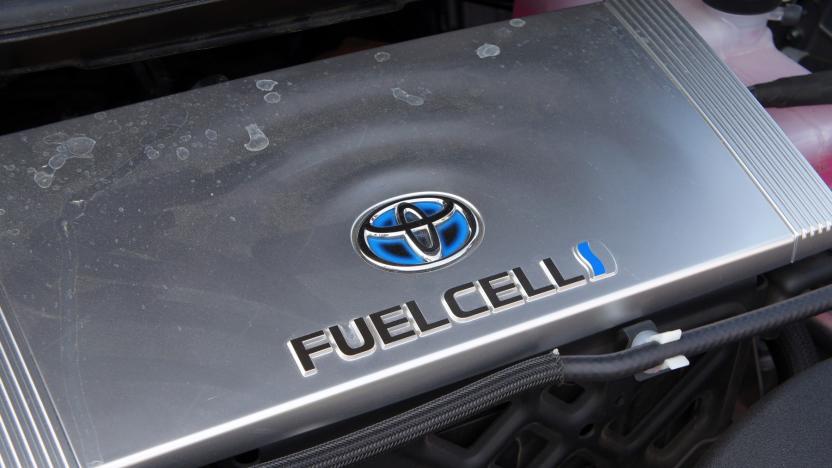
It’s too early to write off hydrogen vehicles
Hydrogen is either the wonder fuel of the future or a technological cul-de-sac. Toyota believes the former, and has spent the past few decades developing mass-market hydrogen cars. The automaker showcased what the technology can do, in the form of its Mirai Fuel Cell Electric Vehicle (FCEV), which launched in 2015. But while its Mirai might be the most visible use of the technology, it's by no means the only place these engines can work.

Honda and Toyota are still backing hydrogen fuel-cell cars
Toyota, Honda and Nissan are partnering with eight industrial firms to make a fresh push on hydrogen refuelling stations in Japan. The group wants to build 80 stations within the first four years of the partnership -- which is expected to last a decade -- with nine in operation by March 2018. The plan would nearly double the 91 stations currently in the country.

What you need to know before buying an EV
It's an exciting time for the automotive world. Over the past 15 years, cars have gone from relatively dumb machines that get us to our destinations to electrified, connected gadgets. In the coming decade, the technology being developed by traditional automakers and nascent upstarts will not only transform the way we drive, but change how cities operate.

Nastier version of IoT botnet could brick your smart toaster
Two new versions of a nasty botnet called BrickerBot were spotted in the wild by researcher Pascal Geenens, who reported the latest attack for security firm Radware. Permanent denial-of-service botnets like these can infect poorly-protected IoT devices like smart toasters and web-enabled vibrators to bring down various connected web servers. These new BrickerBot iterations use scripts with even more commands and almost four times as many actual attacks as previous iterations to completely overwhelm their targets.

How an animated-GIF camera morphed into a nascent chip empire
Not many computers can thank GIFs for their existence. In 2013, Dave Rauchwerk worked on a San Francisco art installation that allowed people to record and project a GIF of themselves onto a building. It was popular and led to Rauchwerk joining with two friends to start a hardware company called Next Thing Co. Their aim? To create a camera that can capture GIFs for $100. After a long stay in China with the HAX Accelerator, Next Thing Co. launched OTTO, a $250 "hackable GIF camera" in 2014. It was the first product to integrate Raspberry Pi's Compute Module, and generated a lot of interest. Keen mathematicians may have noted the discrepancy in the intended and actual price -- $250 is many more dollars than $100 -- and the public did, too.

Krebs pinpoints the likely author of the Mirai botnet
The Mirai botnet caused serious trouble last fall, first hijacking numerous IoT devices to make a historically massive Distributed Denial-Of-Service (DDoS) attack on KrebsOnSecurity's site in September before taking down a big chunk of the internet a month later. But who's responsible for making the malware? After his site went dark, security researcher Brian Krebs went on a mission to identify its creator, and he thinks he has the answer: Several sources and corroborating evidence point to Paras Jha, a Rutgers University student and owner of DDoS protection provider Protraf Solutions.

2016 claims another victim: Your privacy
In a blow to privacy on par with the Patriot Act, changes to the rules around warrants grant the US government unprecedented hacking powers in any jurisdiction, and on as many devices as it wants. The changes to a measure known as Rule 41 were made earlier this year but went into effect Thursday after lots of opposition. Basically, they let any judge issue a warrant to remotely access an unlimited number of computers and devices located in any jurisdiction. There was plenty of objection from senators and congresspeople, groups like the Center for Democracy and Technology and companies such as Google, who said it's unconstitutional and invades citizens' rights to privacy.

How an obscure rule lets law enforcement search any computer
With today's amendments to Rule 41, the statute that regulates legal search and seizure, the US Department of Justice has a new weapon to fight cyber crime -- but it's a double-edged sword. The changes expand the FBI's ability to search multiple computers, phones and other devices across the country, and even overseas, on a single warrant. In an increasingly connected world, amending the rules is both necessary for law enforcement agencies and deeply concerning for digital privacy advocates. And for everyday citizens, it's a little bit of both.

Mirai botnet targets Deutsche Telekom routers in global cyberattack
The German Office for Information Security confirmed on Tuesday that not only had nearly a million routers on the Deutsche Telekom (DT) network been recently attacked but that the assault was part of a larger campaign stretching across the world.

Toyota confirms it will develop electric vehicles
Toyota's still adamant that it's going to get the world hooked on hydrogen-powered cars in our (hopefully) green future. But in the meantime, it's decided to dive head-first into building its first all-electric vehicle to take on Tesla. The carmaker has announced that it's launching a "virtual" company to examine and develop EVs. The business will have four employees, each one from a different part of the Toyota Group's various subsidiaries and suppliers.

4chan might have knocked out Hillary Clinton call centers yesterday
It shouldn't come as a shock that many denizens of internet cesspool 4chan are fans of Donald Trump. So it's also not a huge surprise that one 4chan user apparently took it upon himself to disrupt a segment of Hillary Clinton's get out the vote call centers. As reported by The Verge, workers with NextGen Climate (a group dedicated to raising awareness to climate change issues) noticed problems with their automated calling program yesterday -- it got slower and eventually would cut out for hours at a time.

Toyota could abandon hydrogen in favor of EVs
Toyota has been vocal in its belief that hydrogen-powered vehicles like the Mirai will eventually replace gas and diesels. But this insistence makes the company's recent decision to launch a long-range EV similar to the Tesla such a surprise. Reuters (via Nikkei) is reporting that the carmaker will quietly reverse its longstanding resistance to pure all-electric vehicles in the very near future. It's believed that Toyota will launch a new EV with a range of around 186 miles on a charge by 2020 as it looks to make all of its products emissions-free by 2050.
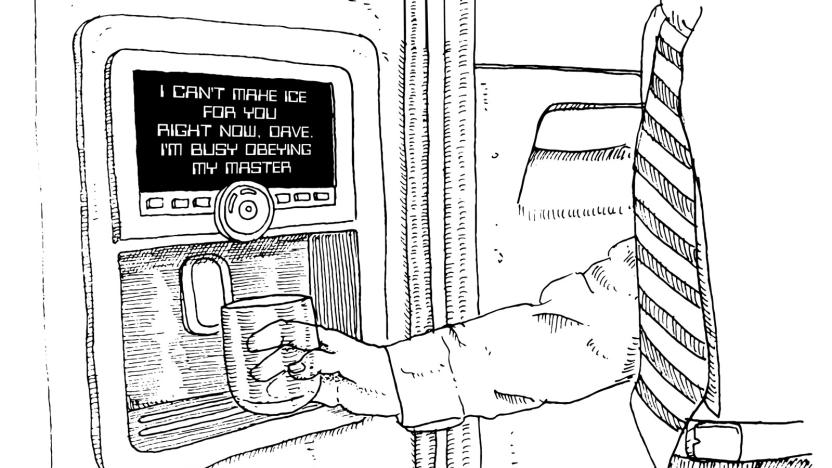
That time your smart toaster broke the internet
Where were you the day the internet died? Last Friday the internet had its biggest hiccup to date when a whole bunch of major websites were maliciously knocked offline. Harnessing the weak security of internet-connected devices, like DVRs and cameras, the attackers used botnets implanted on the devices to traffic-overload the one business keeping those sites' domain names functional.

Blame the Internet of Things for today's web blackout
Today's nation-wide internet outage was enabled thanks to a Mirai botnet that hacked into connected home devices, according to security intelligence company Flashpoint. The distributed denial of service attack targeted Dyn, a large domain name server, and took down Twitter, Spotify, Reddit, The New York Times, Pinterest, PayPal and other major websites.
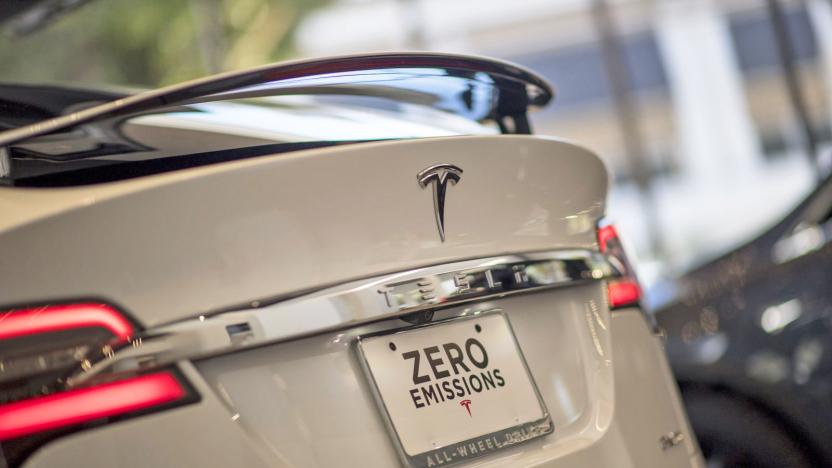
Tesla edges out Toyota for longest range zero-emission vehicle
We knew Tesla was revving up and adding range to its electric vehicle lineup, but now we have the EPA's official word. The company's top-of-the-line Model S P100D is not only quickest production car in the world, but it's also the longest-running zero-emission vehicle with 315 miles of range -- narrowly beating out Toyota's hydrogen fuel-cell Mirai by just three miles.












